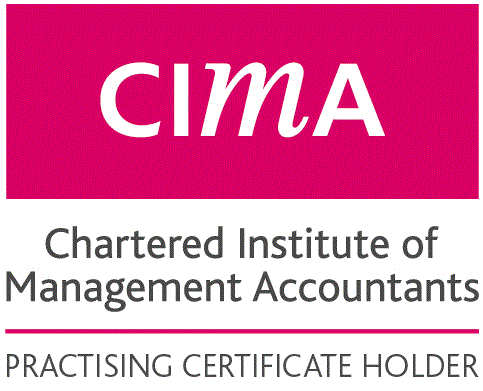

What’s Required When Starting a New Business in the UK: The Ultimate Step-by-Step Guide
What’s Required When Starting a New Business?
Starting a new business in the UK is an exciting (and slightly nerve-wracking) journey. You’ve got an idea, maybe even a name, but what next? The truth is, there are quite a few boxes to tick before you can officially start trading.
That’s why we’ve created this blog to walk you through everything that’s required when starting a new business, from idea to implementation, and all the legalities in between.
If you’re a new entrepreneur or small business owner in the UK, this blog is for you.
1. Develop and Validate Your Business Idea
First things first: is your business idea viable?
Ask Yourself:
Does your product or service solve a real problem?
Who is your ideal customer?
Is there demand in the market?
What are your competitors doing?
Take time to research the market. You don’t need a 40-page business plan, but a lean plan that covers your value proposition, ideal customer, pricing, and route to market is a smart move. This step ensures you’re building a business that has legs and not just a good idea in theory.
Tools to Help:
Google Trends and Keyword Planner for market interest
Competitor analysis using tools like SEMrush or Ubersuggest
Surveys or social media polls to test interest
2. Choose a Business Structure
One of the most important decisions you’ll make when starting a new business is choosing the right legal structure. Each comes with different levels of responsibility, tax obligations, and liability.
Your Main Options:
Sole Trader: Simple and easy to set up. You run the business as an individual and keep the profits (after tax), but you’re personally liable for any debts.
Limited Company: A separate legal entity. You’ll need to register with Companies House, submit annual accounts, and pay Corporation Tax. But it gives you liability protection and potentially more tax saving strategies.
Partnership: You go into business with others. Like a sole trader, but responsibilities and profits are shared.
If you’re unsure, speak to an accountant (hi, that’s us) who can explain which option suits your goals, industry, and plans for growth.
3. Registering Your Business
Once you know your structure, it’s time to make it official.
Here’s what you need to do:
Sole Trader: Register for Self Assessment with HMRC. Simple, quick, and free.
Limited Company: Register your company name and details on Companies House (there is a fee for incorporation). You’ll also get a Unique Taxpayer Reference (UTR) and Companies House Authentication Code.
VAT Registration: Required if your taxable turnover exceeds £90,000. Even if you’re under the threshold, voluntary VAT registration can offer benefits.
PAYE Registration: If you plan to hire staff or pay yourself a salary as a director, you’ll need to register for PAYE with HMRC.
Don't forget to register with the Information Commissioner's Office (ICO) if you collect personal data.
4. Understand Your Tax Responsibilities
Let’s be real: taxes aren’t the fun part of starting a new business. But they’re non-negotiable. Getting clued up early will save you a ton of stress (and money) down the line.
Taxes to Be Aware Of:
Income Tax: Paid through Self Assessment if you’re a sole trader or through PAYE as a company director.
Corporation Tax: Paid on profits if you operate a limited company.
VAT: If you’re registered, you’ll need to file VAT returns (usually quarterly).
National Insurance: Class 2 and 4 for sole traders, or through PAYE for company directors.
Dividend Tax: If you’re taking dividends from a limited company, these have their own tax rates.
Tax Deadlines to Know:
Self Assessment: Year ends on 05 April and is due 31 January
Corporation Tax: 9 months and 1 day after your company’s financial year ends
VAT Returns: Usually every quarter
PAYE contributions 22nd of each month
Use accounting software like Xero, QuickBooks, or FreeAgent to automate much of your tax tracking.
Better yet? Work with an accountant who does all this for you.
5. Set Up Your Finances Properly
It’s tempting to dive in and use your personal bank account to run things, don’t do it.
Separate your business finances from day one. It makes it easier to manage your income, expenses, taxes, and cash flow.
Here’s What You’ll Need:
A business bank account (essential for limited companies)
Bookkeeping software (cloud-based is best)
A clear system for tracking expenses and invoices
You should also consider setting up separate savings pots for:
Taxes
Emergency expenses
Future investments (like equipment, staff, or marketing)
6. Legal and Insurance Requirements
Depending on your industry, there may be specific licences or certifications you need before starting a new business.
Legal Must-Haves:
Business insurance: Public liability, professional indemnity, or employer’s liability (which is legally required if you employ anyone)
Contracts and Ts&Cs: Make sure client agreements are crystal clear
GDPR compliance: If you handle personal data, get a privacy policy in place and register with the ICO
Intellectual Property: Consider trademarking your business name or logo
Skipping these steps can come back to bite you, so don’t leave it until later.
7. Branding, Marketing and Getting Your First Customers
Here comes the fun bit!
Once the admin is done, it’s time to spread the word. While this step isn’t legally required when starting a new business, it’s essential if you want to grow.
Steps to Market Your Business:
Choose a business name and domain that’s available
Create a logo and visual brand
Build a simple website (even one page is better than nothing!)
Create business social media profiles
Set up Google My Business (great for local visibility)
Start creating content or offering freebies to attract your first clients
And don’t forget to ask for reviews early on!
8. Plan for Growth and Support
Starting a new business is one thing—growing it sustainably is another.
Things to Consider Early:
Will you need funding or grants?
When should you hire your first team member?
Should you outsource tasks like bookkeeping or marketing?
Are you setting your prices to be profitable long-term?
Working with a proactive accountant gives you financial clarity from day one, and helps you scale with confidence.
Starting a new business in the UK is more than just registering a name and building a website. From legal registrations and tax responsibilities to setting up finances and building a brand, there’s a lot to consider. But when you break it down step-by-step, it’s absolutely manageable (especially with the right support).
At our accountancy firm, we help start-ups and small business owners get set up the right way from day one. That means less stress, fewer costly mistakes, and way more time to focus on growing your dream.
Ready to get started?
Book your free discovery call today and let’s build your business the smart way.

FREE DOWNLOADS
A-Z of allowable business expenses
Download your A-Z guide of allowable business expenses.
Financial Housekeeping For Your Small Business
Download your guide to Financial Housekeeping For Your Small Business - ideal for start ups and early stage businesses
How to Scale Up your Business: Tips and Strategies for Success
Download your guide to How to Scale up your Business - ideal for slightly more established businesses that want to grow and scale their business
Don't want the guide?
But do want our regular email filled with tips and insights into business and how to maximise profit and grow your business?
Click here

Ready to take the stress out of finance?

Not quite ready to commit to a long term contract ? Book a value packed Power Hour for now at £180 Inclusive of VAT.





© 2023 All Rights Reserved | Sterling Financial Management Reg No 9780783,
Accounting, Bookkeeping and Business Advisory in Dorking Surrey RH4 2JF